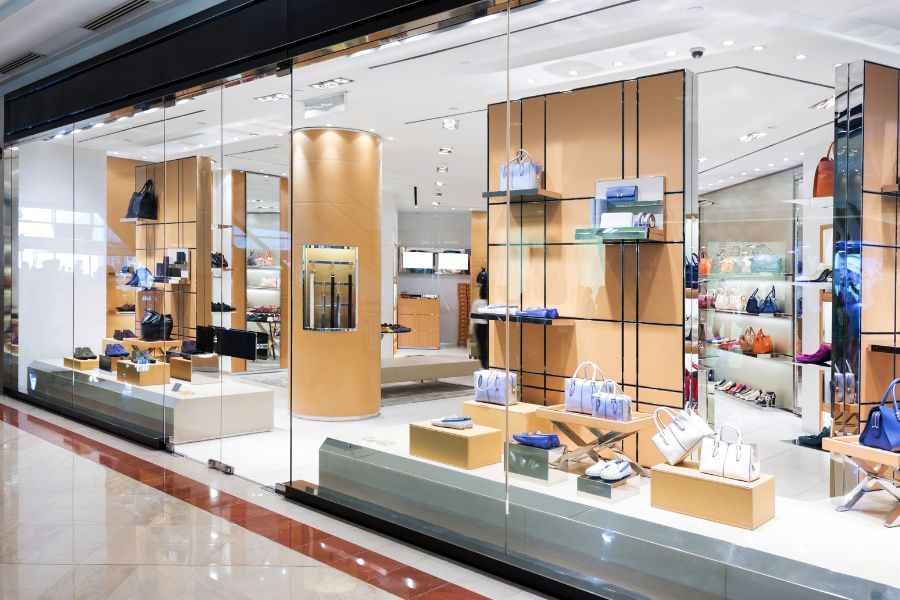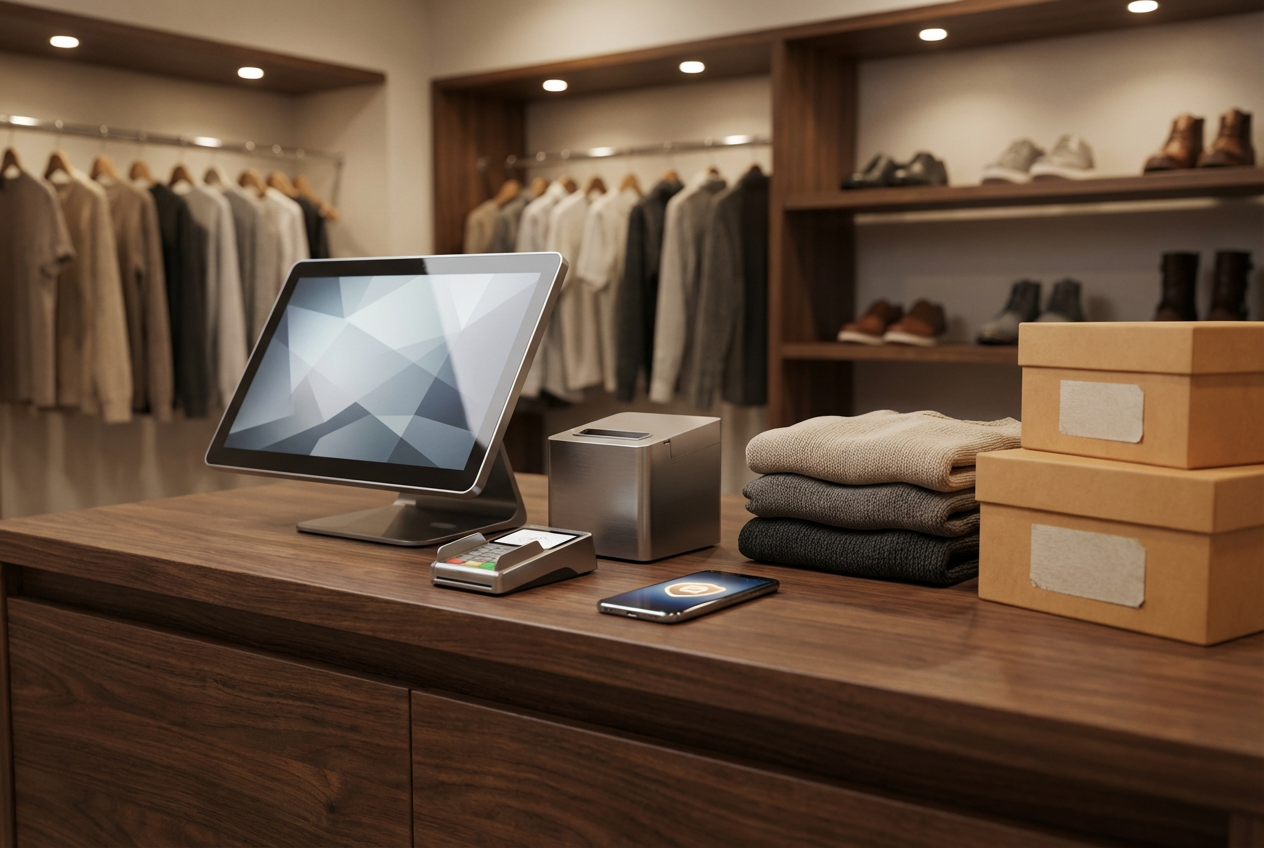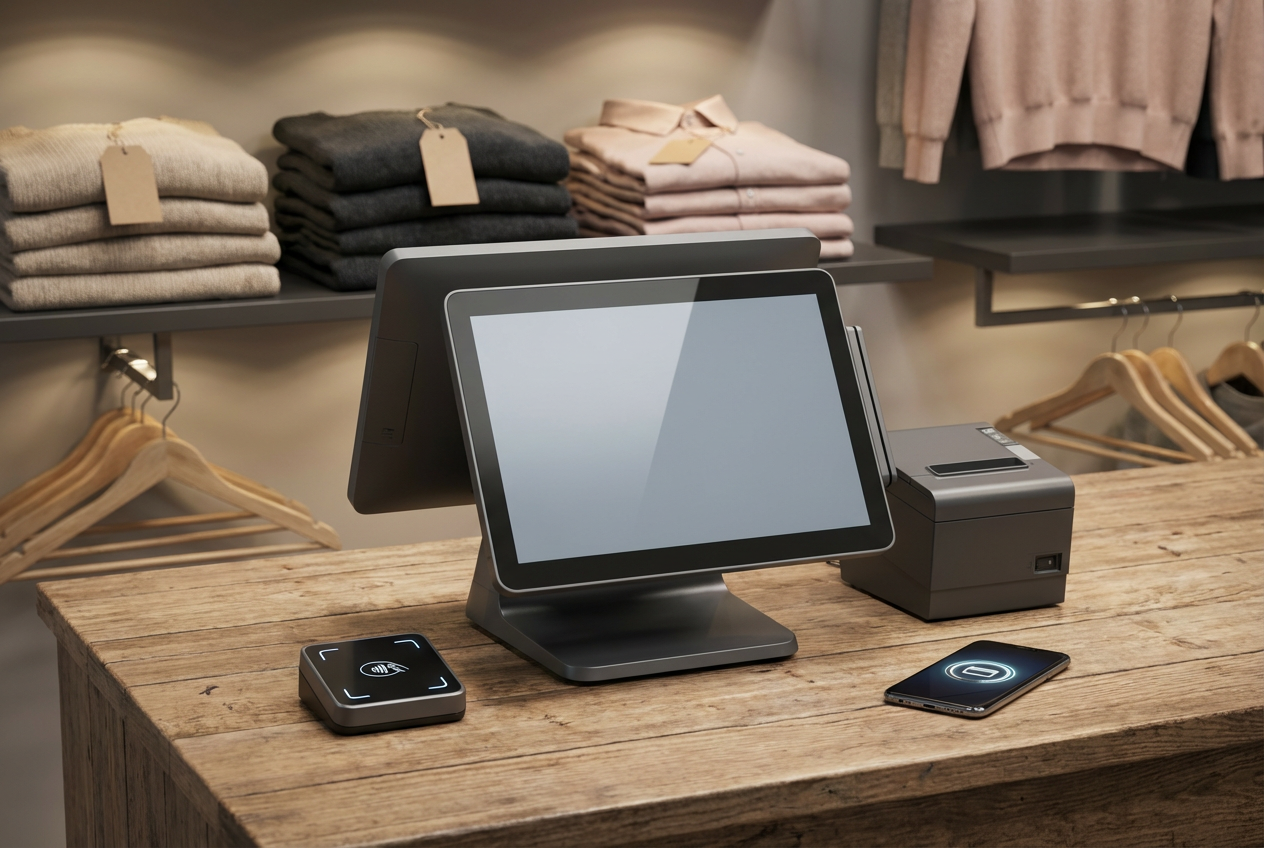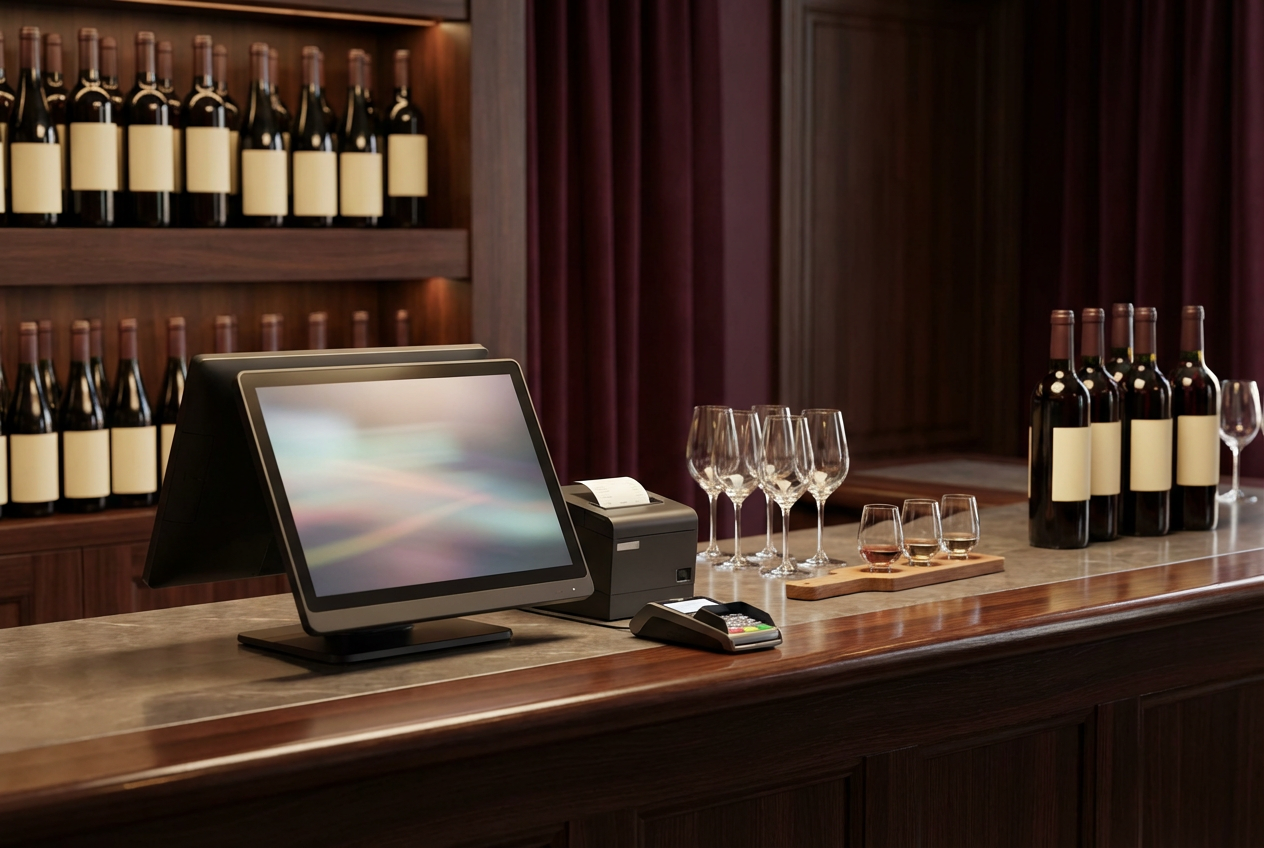It’s 2025, and retail has evolved beyond mere transactions. Stores have become immersive experiences that draw customers in and keep them engaged. As the boundaries between online and offline shopping dissolve, consumers expect interactions with brands to be fluid and tailored to their needs. Retailers now compete not just on price or variety but on delivering these rich, unforgettable shopping journeys. Driving this revolution is the Point of Sale (POS) system. What was once a tool for simple checkouts is now the technological heartbeat of retail, enabling personalized interactions, omnichannel connections, and seamless operations. Let’s explore 10 key retail trends for 2025 and POS systems’ pivotal role in shaping them.
Highlights
- Sustainability, mobile payments, and social commerce are shaping the future of retail, driving businesses to adapt to environmentally conscious practices, cashless transactions, and platform-based shopping.
- Modern POS systems will empower retailers by integrating eco-friendly solutions, enabling seamless mobile payment processes, and synchronizing operations with social commerce platforms for a unified experience.
Top 10 retail trends to watch in 2025 and impact on POS system development
As global retail sales are projected to reach around 32.8 trillion U.S. dollars by 2026, up from 26.4 trillion in 2021, several key retail trends will shape the future of the industry. Let’s explore these trends and their potential impact on POS systems in retail.
AI-Driven Personalization
Artificial intelligence has become a cornerstone of modern retail. A 2023 survey found that 73% of retail IT executives prioritized AI for boosting productivity, cutting costs, and accelerating profitability. But beyond efficiency, AI is revolutionizing customer experiences by delivering hyper-personalized interactions.

For POS systems, this trend necessitates a shift toward advanced analytics capabilities. These systems need to process data from multiple sources, such as customer profiles, transaction history, and even external data like social media activity or weather patterns.
Imagine a shopper receiving personalized recommendations at checkout based on their past purchases and browsing behavior. AI-powered systems also allow retailers to automate loyalty programs, fine-tune upselling strategies, and design bespoke promotions, forging stronger customer connections and driving repeat business.
Rise of Experiential Retail
As digital commerce continues to thrive, physical stores are evolving to provide experiences that cannot be replicated online.
Retailers are transforming their spaces into interactive hubs where customers can engage with products and brands in meaningful ways, aligning with key retail trends like omnichannel integration, personalization, and sustainability. This transformation includes incorporating AR and VR technologies to enhance the shopping journey.
For instance, augmented reality can allow customers to visualize furniture in their homes or try on clothing virtually. POS systems that integrate these technologies enable smooth transitions from exploration to purchase. Beyond AR and VR, experiential retail includes events, pop-ups, and product demonstrations, all requiring POS systems to handle flexible and portable setups. Features like real-time stock updates and mobile payment capabilities are critical for supporting these dynamic retail environments.
Moreover, experiential retail often involves collecting customer feedback through interactive displays or gamified engagement. Modern POS systems must be equipped to capture and analyze this data, providing retailers with actionable insights for refining future experiences.
Omnichannel Integration
Online and in-store shopping boundaries have blurred, as customers now expect a cohesive experience across channels. They can effortlessly research online, purchase in-store, or even buy via social media and pick up at a physical location.
►►► Optimal solution set for businesses: Multi store POS, Next-gen POS, Inventory Management Software (MSI), Self Service, Automation, Backorders
POS systems are evolving to unify operations. Centralized inventory management ensures accurate stock information across platforms, preventing overselling or delays. Unified customer profiles provide staff with a complete view of each shopper’s history, enabling consistent service no matter the touchpoint.
Flexible payment options, from traditional cards to digital wallets and “buy now, pay later” services, further streamline the shopping experience. Omnichannel-ready POS systems also support features like click-and-collect or hassle-free returns across locations, ensuring smooth interactions at every step.
Subscription-Based Models
Subscription services have gained popularity as customers value convenience, exclusive benefits, and predictable costs. Retailers are offering everything from monthly product boxes to all-access memberships, necessitating a shift in POS functionality.
Modern POS systems support recurring billing with customizable payment schedules, pricing tiers, and discounts. Integrated CRM tools track subscriber preferences, enabling retailers to recommend tailored products or services.
Subscription models also present opportunities for personalization, as POS systems can leverage data to recommend products or services tailored to individual subscribers. Furthermore, built-in analytics can provide insights into churn rates, customer lifetime value, and subscription trends, enabling retailers to fine-tune their offerings. As this trend grows, the adaptability of POS systems will play a key role in supporting retailers’ subscription strategies.
Sustainability in Retail
Sustainability has moved from being a niche concern to a primary driver of consumer choices as realistic retail trends. Shoppers are now evaluating brands not only by the quality of their products but also by their environmental impact. Retailers are responding by prioritizing eco-friendly practices, and POS systems are evolving to reflect these values.
One way POS systems contribute to sustainability is by providing digital receipts as a default option, reducing paper waste. Beyond this, advanced systems can integrate features that track the environmental impact of products, such as carbon emissions associated with production or shipping.
Some retailers also adopt circular economy models, such as trade-in programs or second-hand sales. POS systems supporting these initiatives need functionality for processing returns, evaluating product conditions, and tracking inventory in real time.
Transparency is also gaining traction – POS systems that display sustainability credentials during checkout empower consumers to make informed choices. These tools position retailers as champions of responsible business practices, resonating with today’s environmentally aware shoppers.
Increased Use of Mobile Payments
Mobile wallets, such as Apple Pay, Google Wallet, and various regional platforms, have become a preferred method of payment for many consumers. The shift to mobile payments is driven by the ease and speed they offer, as well as the rise of contactless transactions.
This trend means that POS systems must be equipped to process a wide range of mobile payment options. In addition to traditional credit and debit card payments, POS systems should support newer forms like biometric authentication (e.g., fingerprint or facial recognition) and QR code scanning, which streamline the checkout process and enhance security.
Integrating these mobile payment options requires POS systems to stay updated with the latest standards in mobile wallets and contactless technologies. With smooth mobile payment capabilities, retailers can reduce transaction time, improve customer satisfaction, and keep up with the growing demand for cashless experiences.
Growth of Social Commerce
Social media platforms have transformed into powerful sales channels, even more so in 2025. Consumers now frequently shop directly through platforms like Instagram, Facebook, TikTok, and others, making it crucial for retailers to integrate social commerce into their sales strategies. POS systems must support these channels, enabling direct transactions within the social media environment.
For instance, integrated payment options on social platforms must flow smoothly into the retailer’s back-end systems. This integration allows for real-time data sharing between social channels and inventory systems, ensuring accurate stock levels, smooth order fulfillment, and updated customer profiles.
Retailers can also gain valuable insights from social commerce data, using it to refine marketing strategies and improve customer engagement. With POS systems, this means managing transactions from multiple platforms while maintaining a unified inventory, payment processing, and customer relationship management system.
Focus on Security and Fraud Prevention
As digital transactions grow, so do the risks of fraud and data breaches. Retailers must prioritize cybersecurity, and modern POS systems are stepping up with cutting-edge security features.
AI-powered fraud detection within POS systems can monitor transactions in real time, flagging suspicious activity such as unusual purchase patterns or location mismatches. This can help prevent fraudulent transactions before they occur, reducing the risk of chargebacks and loss of revenue.
Furthermore, end-to-end encryption ensures that sensitive customer information, such as payment details, remains secure throughout the transaction process. For retailers, adopting POS systems with these security features is not just a matter of compliance; it also builds consumer trust and enhances brand reputation.
Self-Checkout and Automation
You can quite see that automation is loved not only by business owners like you but by customers as well. Modern POS systems must support innovations such as self-service kiosks, automated checkout lanes, and mobile app-based transactions.
These systems should also incorporate features like contactless payment options and inventory updates in real-time to ensure efficiency. Self-checkout technologies reduce wait times, minimize human error, and allow retailers to allocate staff to other important tasks.
For retailers, this trend represents a shift toward meeting consumer preferences for speed and convenience. Investing in automated solutions ensures a seamless shopping experience that matches modern customer expectations.
AI-Enabled Inventory Management
Stockouts or overstocking can lead to lost sales or increased operational costs. AI-enabled inventory management systems are becoming leading retail trends and essential tools for retailers, as they can forecast demand, track real-time stock levels, and optimize supply chains.
POS systems integrated with AI algorithms can forecast demand, automate reordering, and optimize stock levels. Dynamic pricing, which adjusts based on inventory and demand, is another feature supported by AI. These systems also ensure transparency in supply chains, reducing waste and improving overall efficiency.
For retailers, AI-powered POS systems provide a competitive edge, enabling precise inventory control and a more consistent product offering.
How ConnectPOS can help your business in this landscape
ConnectPOS provides a comprehensive next-gen POS solution for businesses navigating the dynamic retail trends. Its advanced features and flexibility support the latest trends and helps businesses stay competitive and efficient.
- Mobile Payment Integration: ConnectPOS integrates with mobile wallets like Apple Pay, Google Wallet, and QR code payments, giving quick, secure, and convenient checkout experiences. It also supports biometric authentication for added security.
- Robust Security Measures: ConnectPOS features advanced encryption protocols to protect sensitive customer data. The system monitors transactions in real-time, flagging suspicious activities to prevent fraud and ensuring compliance with data protection regulations, all while maintaining customer trust.
- Self-Checkout and Automation: ConnectPOS supports self-checkout systems, contactless payments, and automated processes, reducing wait times and enhancing operational efficiency with real-time inventory updates.
- Omnichannel Capabilities: ConnectPOS unifies in-store, online, and social commerce channels, providing a smooth and personalized experience for customers across platforms while managing payments, inventory, and customer data.
- Flexibility for Subscription Models: The system supports recurring billing and customizable membership programs, making it easy for businesses to manage subscriptions alongside one-time transactions.
- Advanced Personalization: Transform customer experiences with innovations like smart personalization engines that use self-checkout to enable personalized online and in-store shopping experiences. Plus, Progressive Web Apps (PWA) provide fast, app-like functionality across devices, while tailored rewards and promotions enhance loyalty through insights into customer behavior.
FAQs: 10 Retails Trends in 2025
- How can businesses prepare their POS systems for these retail trends?
Businesses should invest in POS systems that provide flexibility and scalability. Ensuring integration with mobile payments, social media platforms, AI tools, and sustainability features will help businesses stay ahead of the curve and meet evolving customer expectations.
- What role will self-checkout systems play in the future of retail?
Self-checkout systems and automation streamline transactions, reducing wait times and enhancing the customer experience. POS systems must facilitate these processes with accurate product scanning, real-time payment processing, and inventory updates.
- How do POS systems help retailers adapt to the evolving consumer preferences in 2025?
POS systems with AI and real-time data analytics can quickly adapt to changes in consumer behavior. By tracking purchasing patterns and preferences, POS systems can help businesses provide more personalized experiences, optimize their inventory, and improve overall customer engagement.
Conclusion
As 2025 approaches, the future of retail is brimming with exciting possibilities. The retail trends shaping the market – from hyper-personalization to sustainable shopping – are pushing retailers to rethink their approach. However, none of this would be possible without the technology that powers it all, particularly POS systems.
These systems are becoming increasingly sophisticated, adapting to new payment methods, integrating with AI, and supporting everything from social commerce to subscription models. For retailers, the time to act is now.
Ready to take your retail business to the next level? Contact us to learn how ConnectPOS can help you stay ahead with an intuitive, fully integrated POS solution for tomorrow’s retail trends.
►►► Optimal solution set for businesses: Shopify POS, Magento POS, BigCommerce POS, WooCommerce POS, NetSuite POS, E-Commerce POS



